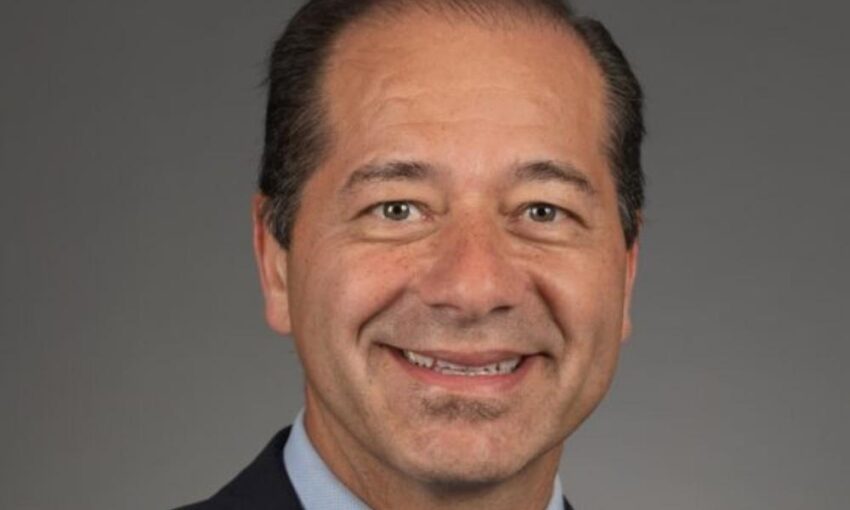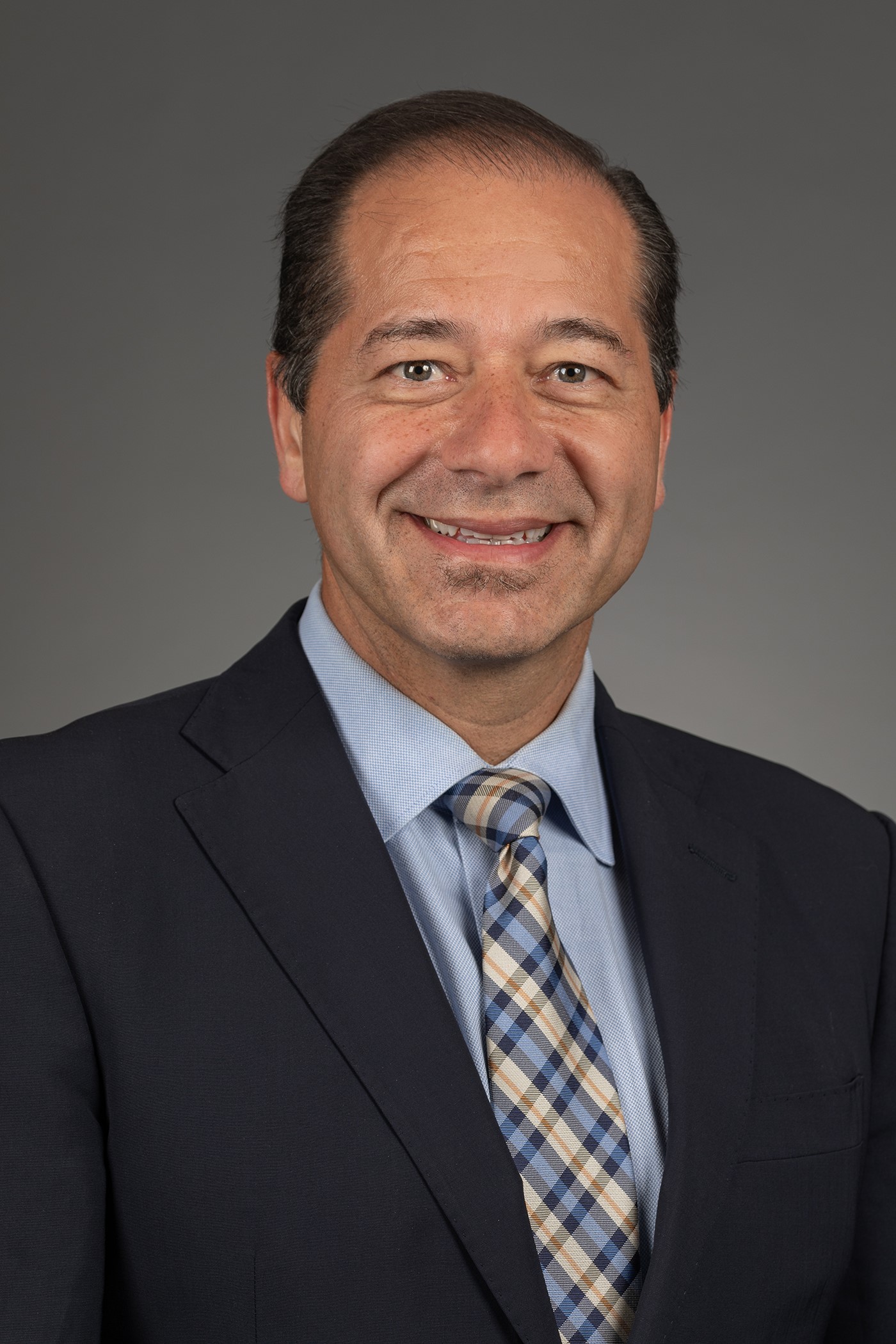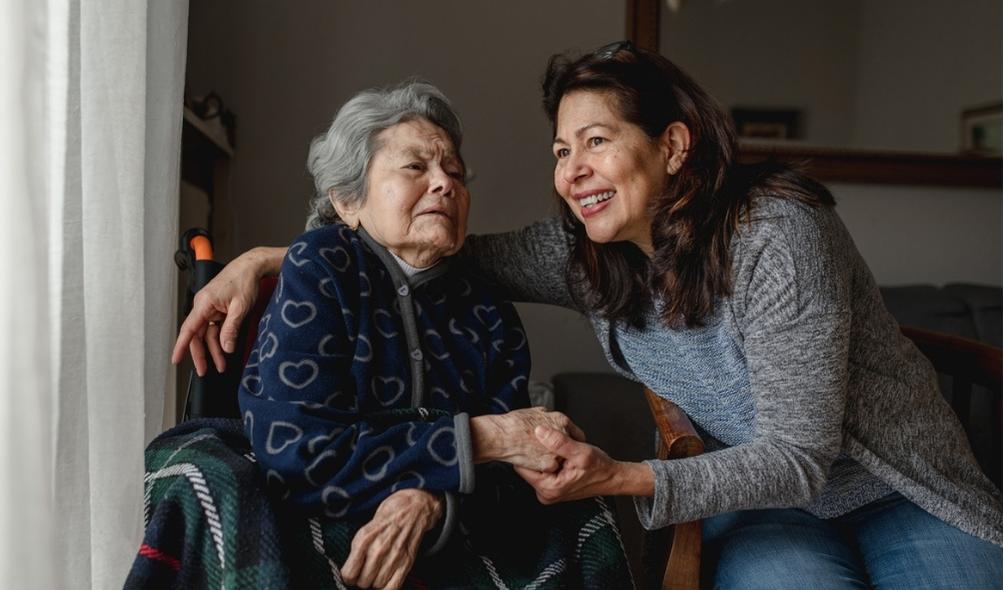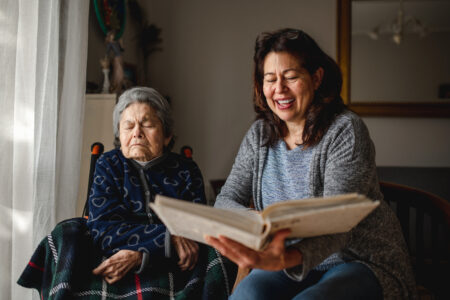
Share On Social!
Living with a cognitive disease is difficult because of how it impacts you and those around you.
It can create a stigma, which prevents people from seeking help. This stigma can be worse for Latinos, who face cultural barriers and are often affected by these disorders at a high rate.
That’s why physicians like Dr. Gus Alva are trying to help Latinos heal from diseases like Parkinson’s.
He teamed up with Acadia Pharmaceuticals and StoryCorps nonprofit for the “Yours, Truly” campaign, a bilingual effort to use multicultural storytelling to bring awareness to the non-motor symptoms of Parkinson’s disease.
“This campaign is quite important because it really lends to the public an opportunity of being able through storytelling to convey some very important information and to provide educational resources from different advocacy organizations from across the US,” Alva said.
Learn more about Alva’s efforts through the Yours, Truly campaign, how Latinos are affected by Parkinson’s, and how we can improve research on Latino neurological diseases through clinical trials.
Alva’s Background in Clinical Research & Cultural Connection
Alva is the medical director of ATP clinical research, a neuropsychiatric clinical research company in Costa Mesa, Calif. (35.6% Latino). He is also an associate professor in the Department of Psychiatry and Human Behavior at the University of California, Irvine.

“I did my residency training at the University of California, Irvine, and I helped run the Clinical Research Division there for about 14 years. I feel passionate about this space because medicine is an ever-changing arena, and we’ve learned, and we understand and comprehend many more things now than we did before,” Alva said.
Alva’s parents are Mexican and French, which helped him develop skills as a cross-cultural psychiatrist.
This comes in hand when working with Latinos with neuropsychiatric disorders.
“I have the ability of being able to relate relatively well across a cultural bridge, and this particular campaign right now was brought to my attention. Anything that speaks toward advocacy and enhances education for the public about areas that are really important, such as Parkinson’s disease psychosis, is an area that I always like being involved with,” Alva said.
The Effect of Parkinson’s on Latinos
It’s difficult to gauge at what rate Latinos develop Parkinson’s compared to other groups due to the lack of Latinos in clinical research.
“The underrepresentation of Hispanics in overall Parkinson’s research is important and ties in directly to the stigma that we Latinos have socially and culturally,” Alva said.
Some studies suggest Latinos experience Parkinson’s at a higher rate than their peers, much like other cognitive diseases like dementia.

People often think of the declining motor functions, such as tremors, as the main sign of Parkinson’s.
But some of the more impactful symptoms are non-motor related.
“Sometimes they know that constipation, or REM sleep, behavioral dysregulation, or excessive daytime sleepiness, or depression, or dementia are associated with Parkinson’s. But one thing that people don’t often times talk about is psychosis or hallucinations or delusions, which can be quite daunting for people,” Alva said.
These debilitating mental symptoms have caused a stigma about the disease.
Latinos especially struggle with this stigma.
“One area that I’m very, very deeply passionate about is getting information to the Hispanic community, and I myself have that backdrop. So it’s really key and critical to let people know and have them understanding that there are conditions that affect people and that they shouldn’t shy from speaking about certain symptoms. Often times people feel a sense of embarrassment or don’t feel comfortable sharing their condition,” Alva said.
The stigma against seeking help for mental health symptoms is common among Latinos, according to many Latino psychiatrists like Dr. Luz Garcini and Dr. Cheryl Aguilar.
This can be due to cultural beliefs about pride and wanting to remain secretive about health.
That’s why Alva wants to encourage Latino patients to be open about their conditions with their loved ones and with healthcare providers.
“We have to encourage individuals to be direct. Somebody might be seeing things or hearing things or smelling things or feeling things that aren’t necessarily there or having a fixed false belief, such as they’re going to be abandoned. It’s important to let people understand that these are symptoms that could accompany Parkinson’s disease because it then creates a conduit for people to get the appropriate care that they should be getting,” Alva said.
Working on the Yours, Truly Campaign
To spread awareness of the non-motor symptoms of Parkinson’s, Alva joined the efforts of Acadia and StoryCorps for the Yours, Truly campaign.
“Yours, Truly is an educational campaign and website that features stories from the Parkinson’s disease community as well as access to bilingual resources from national advocacy organizations supporting the Parkinson’s disease community,” Alva said.

People can access the educational materials and contribute their own stories to the website, building the collection and offering relatable content to those impacted by Parkinson’s.
“These stories will be able to endure over time, and one of the important things right now is reaching out within the Hispanic community and offering additional opportunities for more resources and more education,” Alva said.
Soon, the Yours, Truly will launch a mobile booth and take the campaign on the road.
Alva hopes that this will encourage more people to share their stories and fight the stigma against Parkinson’s.
“Ultimately that’s what the campaign is all about – to get people to feel comfortable. And if I see my Latino neighbor talking about his dad or his mom’s condition, I think it might be an impetus for me to go ahead and share that as well about my mom or my dad, or my wife, or whoever,” Alva said.
How Can We Help Latinos Fight Parkinson’s and Dementia?
Clinical trials are an important way to for researchers to create ground-breaking treatments for diseases like Parkinson’s and dementia.
But Latinos are often underrepresented in clinical trials.
You can make a difference in future research and find a clinical trial near you in Spanish or English.
In San Antonio, volunteer for:
- The bilingual Brain Health Registry. When registering for the Brain Health Registry, participants are asked to enter contact information, demographics, health questionnaires, and take online tests of memory and thinking that are similar to computer games.
- An Alzheimer’s disease clinical trial at the Glenn Biggs Institute for Alzheimer’s and Neurodegenerative Diseases at UT Health San Antonio.
- The REACH trial; for each visit, volunteers are eligible for $100.
- The AHEAD trial; for each visit, volunteers are eligible for $50.
Also, Dr. Amelie G. Ramirez’s Salud America! program at UT Health San Antonio is sharing the stories of clinical trial heroes like Emilia Asto-Flores, Elsada Wilson, and Alma Lopez, with the support of Genentech, a member of the Roche Group.
We are using these stories to fuel Latino-focused recruitment strategies and systems for clinical trials in cancer treatment and Alzheimer’s disease.
To share your story, or share someone we could contact for a story, email Salud America! Program Coordinator Julia Weis.
“It is vital for Latinos to participate in clinical trials,” Ramirez said. “This kind of research can go on to save the lives of countless people. But in order for that to become a reality, we need to see accurate, equitable representation in clinical trials. One way Latinos can help is by signing up to participate in a clinical trial.”
By The Numbers
142
Percent
Expected rise in Latino cancer cases in coming years
This success story was produced by Salud America! with support from the Robert Wood Johnson Foundation.
The stories are intended for educational and informative purposes. References to specific policymakers, individuals, schools, policies, or companies have been included solely to advance these purposes and do not constitute an endorsement, sponsorship, or recommendation. Stories are based on and told by real community members and are the opinions and views of the individuals whose stories are told. Organization and activities described were not supported by Salud America! or the Robert Wood Johnson Foundation and do not necessarily represent the views of Salud America! or the Robert Wood Johnson Foundation.



